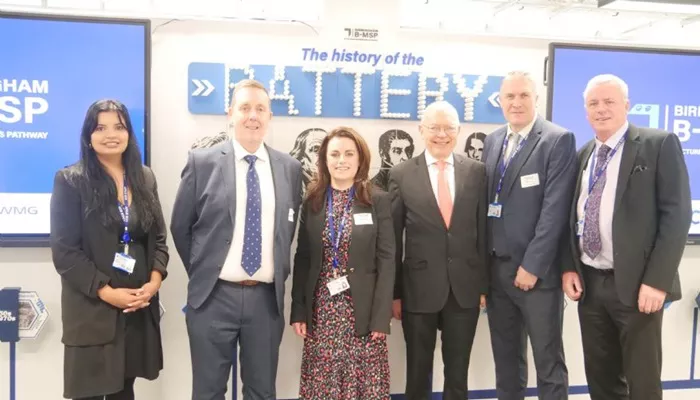University College Birmingham has introduced the UK’s first fully accredited Battery Manufacturing Skills Pathway (B-MSP), aimed at bridging the growing skills gap in battery manufacturing. This new initiative, which is accredited by City & Guilds, is designed to provide flexible and scalable training solutions for both small and medium-sized enterprises (SMEs) and gigafactories.
The B-MSP program is a response to industry needs and is geared towards preparing workers for the rapidly expanding field of battery manufacturing. It combines cutting-edge technology, including augmented reality (AR) and virtual reality (VR) simulations, with hands-on experience and industry-standard tools, ensuring that workers not only understand the theory but also gain practical competence.
Lord Hunt of Kings Heath, Minister of State for Energy Security and Net Zero, highlighted the program’s importance in advancing the UK’s clean energy goals. He stated, “Every wind turbine we put up, every solar panel we install, and every battery storage facility we construct helps protect families from future energy shocks. Storing energy is key to achieving clean power by 2030 and lowering energy bills in the long term. The Birmingham Battery Manufacturing Skills Pathway is essential in preparing the workforce to support this sustainable future.”
Meeting Industry Demands
The program also emphasizes the need for practical training. Gary Tourell, Chief Engineer for Propulsion Prototype Build at Jaguar Land Rover, underscored the value of the program: “Training and safety are critical for us. Anyone working on our prototype batteries must complete Level One entry training. This program goes beyond that and offers critical hands-on experience in live battery work.”
For employees, the B-MSP offers nationally recognized qualifications that employers trust. The program enables trainees to gain the skills and confidence to make an impact from the first day on the job. It also provides a pathway to skilled careers in engineering and manufacturing, catering to career changers, new entrants, and underrepresented groups in the rapidly growing battery manufacturing sector.
Collaboration and Support
Pritti Shoker, Project Manager for B-MSP, emphasized the collaborative nature of the program, noting the contributions of partners such as Cranfield University, Ravmac, and WMG at the University of Warwick. Funding from UKRI’s Faraday Battery Challenge, delivered by Innovate UK, has been key to the program’s success. Shoker explained, “With the support of our partners, we can deliver a program that not only addresses the skills gap but also opens doors to careers in electrification across various industries.”
Through this innovative training initiative, University College Birmingham is helping to prepare the next generation of workers for the vital and growing field of battery manufacturing, contributing to the UK’s clean energy future.

